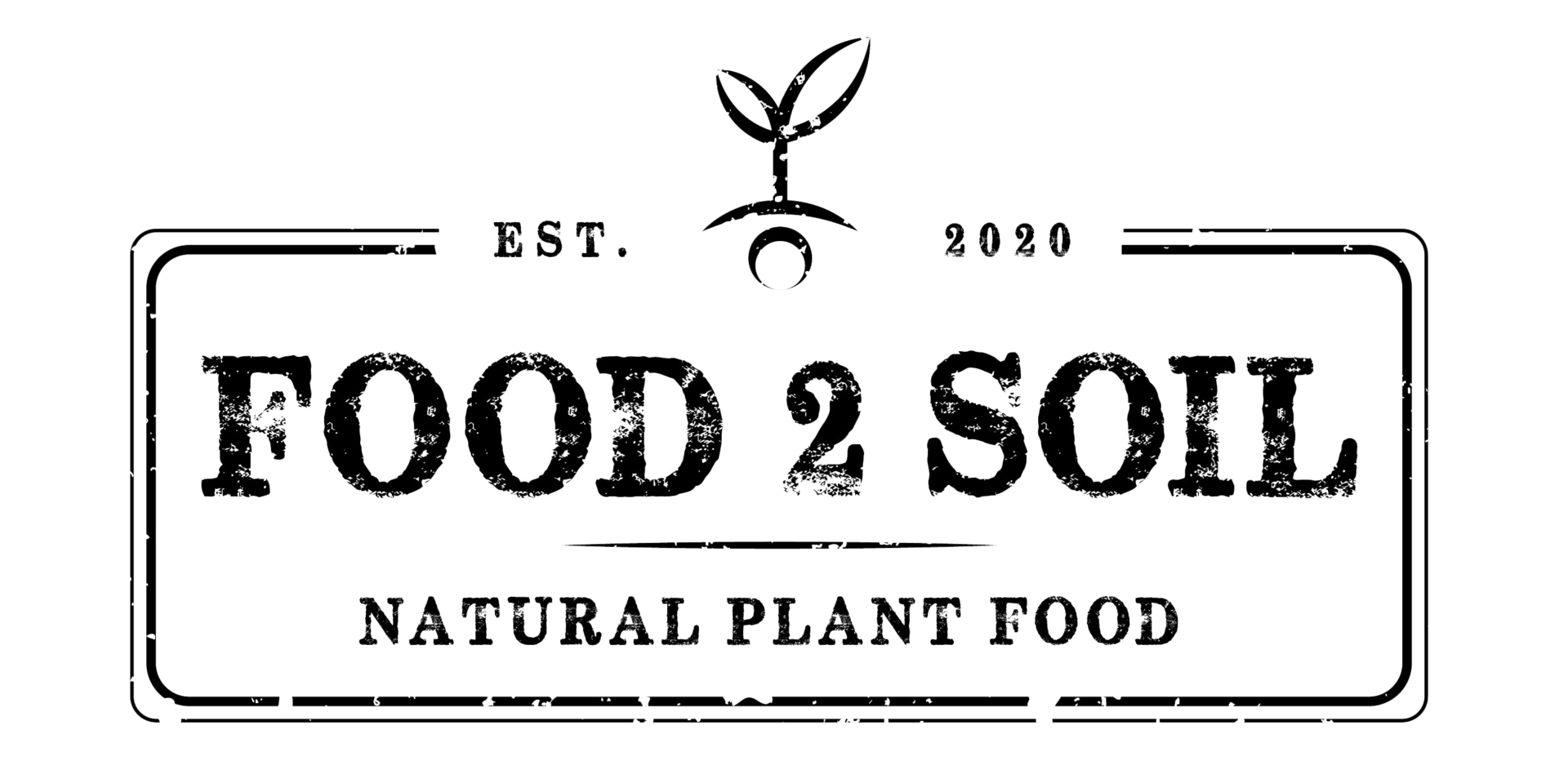When our soils and plants are healthy, human health can benefit from the beneficial microbes in the foods we grow and eat, supporting our microbiome and gut health. Not only does Food2Soil feed soils and plants that help human health, but it also reduces waste to landfill by reusing commercial food waste, which currently has a devastating impact on our planet when left in landfill.
So, where can you start to make our soils, plants and planet healthier?
Here are our 5 best tips for naturally improving your soil and plant health at home.
1. Add Organic Matter
1. There is no argument that adding fresh compost or aged animal manure to your garden will improve your soil and plant health greatly. Not only does organic matter feed plants and soils, it also feeds beneficial organisms that live in the soil.
Whilst there are many resources out there for making great compost at home, here are our top composting tips:
- Don’t be tempted to skip out on adding carbon to your compost, always add equal parts brown (carbon) to green (nitrogen).
- Chop your food scraps into smaller pieces, helping them break down quicker.
- Regularly water and aerate/turn your compost to speed up the composting process.
- Add your used tea leaves and coffee grounds for extra nitrogen and trace minerals! (Avoid adding tea bags, strings or labels as they are often made of plastic).
- Get creative with your compost ingredients, and use Autumn leaves as a rich nutrient resource.
2. Boost Your Soil Biology
“In the hidden world beneath our feet, microbes are the unsung heroes of agriculture, orchestrating a symphony of soil health”. – Jagdish Patel, Soil Health Scientist
At Food2Soil, we know that soil needs microbes to function at its best. Adding organic liquid fertilisers such as Food2Soil provides a source of beneficial organisms, also called microbes.
Microbes live in the soils and help maintain the structure of soils, fix nitrogen, break down organic matter, enhance nutrient uptake and protect against disease. For best results, be sure to check the Food2Soil application guide to get the most out of your bottle of Food2Soil.
3. Cover Your Soil
It’s best to keep your soil covered during the dry months, briefly exposing soils to some light and warmth during the coolest months. We like to keep all soils well mulched to suppress weed growth, retain moisture and feed microbes in our gardens.
Growing cover crops or ‘green manures’ that act as living mulch protect your soils and are a great idea in medium to large gardens. Cover crops build organic matter and support soil structure, supply nitrogen and other nutrients to soils. They also provide ground cover to prevent damage to soil structure and bring crop nutrients up from lower soil profiles.
4. Maintain Soil Moisture
As most gardeners know, keeping your soil moist in the dry months is one of the most important things we can do. With increased temperatures, high levels of sunlight and low rainfall rate, soil moisture can evaporate quickly. Whether you hand water or install your own drip irrigation, maintain a regular watering schedule. When hand watering, be sure to water either early in the day; to ensure water infiltration before soils warm up.
5. Use Diversity
Choosing a wide variety of plants means a range of benefits for your soil. Plants with taproots (beetroot, radish, daikon, burdock, dandelion, comfrey) can ease soil compaction, while fibrous roots (white clover, marigold, banana) add soil stability. Plant species that host beneficial microbes and fungi increase their presence in the soil, while legumes can fix nitrogen in the soil for the next growing season. Even in small gardens, diverse groupings of plants can support soil health, reduce pests and diseases, attract wildlife and pollinators, and support microbial life and plant health.
Adding biologically alive inputs to your garden, plants or soils is the best thing you can do to help your plant rhizosphere.
Food2Soil is your easy way to add microbes to soil and plants, plus help combat climate change. Not to mention the instant boost plants receive from absorbing the nutrients in Food2Soil directly through their leaf stomata!

